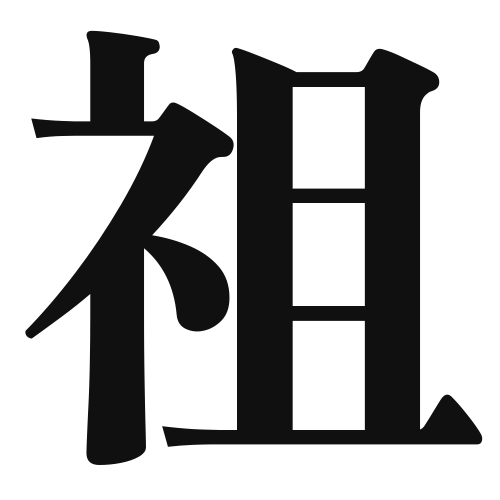1. Overview of Meaning
The kanji “祖” (pronounced “so” or “soko”) means “ancestor” or “forefather.” It refers to one’s forebears or the origin of a lineage, often used in the context of family heritage.
2. Formation and Radical
The kanji “祖” is a compound character (会意文字) that combines elements to convey its meaning. It consists of the radical “示” (meaning “to show” or “to indicate”) at the bottom, which is often associated with religious or ancestral worship, and the character “𠂇” (which represents a person or a figure) at the top, symbolizing the connection to ancestors.
The radical “示” is significant in many kanji related to rituals and offerings, emphasizing the importance of ancestors in Japanese culture.
3. Examples of Usage
Common words and phrases that include “祖” are:
- 祖先 (sosen) – ancestor
- 祖国 (sokoku) – homeland
Example sentences in daily conversation:
- 私の祖先は日本から来ました。
(My ancestors came from Japan.) - 祖国を離れるのは寂しいです。
(It is sad to leave my homeland.)
4. Synonyms and Antonyms
Similar kanji with related meanings include:
- 先祖 (senzo) – also means ancestor, but often refers to more distant ancestors.
Antonyms include:
- 子孫 (shison) – descendant, which refers to the generations that come after.
5. Cultural and Historical Background
The concept of “祖” is deeply rooted in Japanese culture, where ancestors are revered and honored through various rituals and festivals. Ancestral worship is an important aspect of Shinto and Buddhist practices in Japan.
Proverbs and idioms related to “祖” include:
- 祖父母の教えは宝 (Sofu-baba no oshie wa takara) – “The teachings of grandparents are treasures,” emphasizing the value of wisdom passed down through generations.
